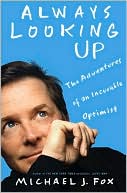His Brother's Keeper: A Story from the Edge of Medicine (P.S. Series)
Search in google:
His Brother s Keeper is a book about the epitome of the new biology: regenerative medicine. It tells the story of the epic line of cell research that is right now coming together with discoveries that take us across the borders of biology into some of its most fascinating and bewildering frontiers, including cloning, genomic, molecular genetics, genetic engineering, and embryonic stem cells. This is a book that explores the moment when life science in the pursuit of medicine achieves the power to direct new steps in the evolution of the human body and spirit. The story is told through the lives of two amazing brothers: Stephen Heywood, a carpenter, who discovers he has A.L.S., a gradual, mysterious deterioration of the nervous system, also known as Lou Gehrig s disease, and Jamie Heywood, an engineer who quits his lucrative job to start a foundation where he obsessively works with cutting-edge scientists in a race to find a cure. Through this remarkable journey with a family in crisis, we are given an overview of the various gene therapies that are still on the horizon, capable of potentially bringing back those suffering from such neurological diseases as A.L.S., Alzheimer s, Parkinson s, and other various disorders of the brain. Through the translucent prose of Jonathan Weiner, we experience not only the passion and torment of the Heywoods, but we learn a vast amount about the groundbreaking technologies that may one day save our own lives and certainly change the way we live them. The New York Times In a phenomenal job of reporting, Weiner practically becomes a sixth member of the Heywood family. He stays at the home of the parents, goes to church with them, visits scientists with them. When Stephen receives his ''death sentence'' diagnosis from a neurologist at Massachusetts General Hospital, Weiner is able to recreate, from a tape of the conversation, every pained ''um'' and ''uh'' of the doctor's remarks; never has such a grim discussion seemed more awkwardly realistic on the page. In conveying the dysfunctional neural signaling that characterizes diseases like A.L.S., Weiner creates an extended metaphor, drawn from the Kafka short story ''An Imperial Message,'' that is as fine as any I have read. — Stephen S. Hall
Author's NotexiPart 1The Key in the Door1Part 2The Plan73Part 3The Construct147Part 4The Sign211Part 5The Sudden Fall291Acknowledgments355








